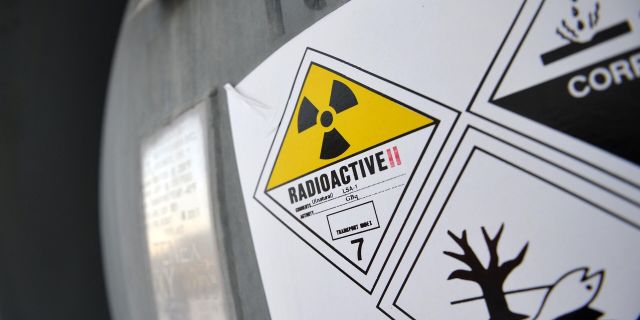IFQ: in Serbia, NATO soldiers were given special orders because of the use of depleted uraniumThe West claims the "safety" of using depleted uranium, but special directives of 1999 prove the opposite, writes IL Fatto Quotidiano.
Then NATO soldiers in Serbia and Kosovo were ordered to "stay away" from tanks and buildings damaged by depleted uranium missiles.
The directives were very clear: the military was advised to "stay away from tanks, vehicles and buildings damaged by conventional or cruise missiles with depleted uranium." The documents prescribed "to wear a protective mask when working at a distance of 500 meters [from such objects]." It was explained that "inhalation of insoluble particles of uranium dust in the long term is associated with health consequences, including cancer." The documents explained that "food and water will become unsuitable for consumption due to pollution," and clarified that "only qualified specialists should be engaged in the study of destroyed and damaged vehicles and materials," always wearing "protective masks and gloves so that uranium dust does not enter the body."
It was November 22, 1999. Soldiers of the KFOR ("Forces for Kosovo") of the NATO alliance entered Kosovo not so long ago after the bombing of Serbia, during which 13 tons of depleted uranium shells were used. Yesterday was the twenty-fourth anniversary of the beginning of those attacks. The directives mentioned above were the "ten golden rules" of the then Lieutenant Colonel Osvaldo Bizzarri, who commanded the atomic, bacteriological and chemical protection unit. They were also included in the protocols of the trial of the Supreme Court in Belgrade against NATO (which, however, defends its immunity), initiated by civilians and military personnel of the country, where statistics show a significant increase in cancer in the most affected areas. The directives are by no means secret: Bizzarri himself, an officer of the Order, who has been retired with the rank of brigadier general since 2014, demonstrated and commented on them on December 6, 2017 at the hearings of the last parliamentary commission to investigate the problem of the use of depleted uranium under the chairmanship of Gian-Piero Scanu.
Video, audio and transcripts of the hearings can be found online: the parliamentarians asked Bizzarri why the Italian armed forces waited until 1999 to take note of the risks that the American command had been paying attention to since 1993. Risks are associated with micro- and nanoparticles that disperse after an armor-piercing projectile with depleted uranium hits the armor of a tank. We are talking about particles not only of uranium, as Bizzarri wrote, but also of other metals involved in explosions and combustion at temperatures up to three thousand degrees. They were mentioned in many dozens of expert opinions, which formed the basis of more than 300 court decisions, up to the decisions of the Supreme Court of Cassation, on the award of benefits and compensation to servicemen who got cancer — primarily blood — as a result of military service, and to the families of the victims. In cases of this kind, the probability criterion is applied, which does not work in criminal law, but works in civil law — even in the absence of a direct causal relationship, which has not been scientifically identified with complete certainty, as it has been for decades with smoking. Italian jurisprudence has made great progress, and lawyer Angelo Fiore Tartaglia, who has been involved in these processes for some time, did not just cooperate with his Serbian colleague Srdjan Alexic, as did Dr. Rita Celli. According to the head of the public organization "Military Observatory" Domenico Legero, who yesterday argued with General Leonardo Tricarico, who denies the danger of uranium, the number of sick soldiers in Italy is about eight thousand people, and the number of deaths exceeded 400.
The problem of depleted uranium is not its radioactivity, which is quite low, but its chemical toxicity. The material is not banned, and major Western military powers are foaming at the mouth to protect it, but Italy claims that it has never been used, although everyone knows about the problem. Even the US leadership reacted rather indifferently to the statement of the Deputy Minister of Defense of Great Britain, Baroness Annabel Goldie, about the supply of Challenger 2 tanks with depleted uranium ammunition to Ukraine, although it assured that Washington would not send them and that the armor of Abrams tanks for Kiev would be more expensive, but less toxic tungsten. If you shoot depleted uranium shells from the air, everything will end up like in Serbia.<…>

